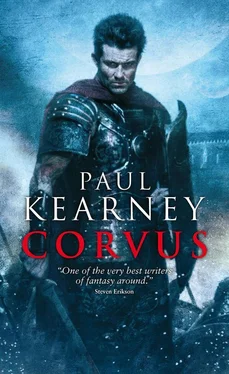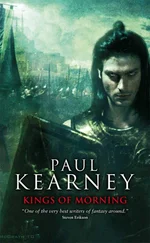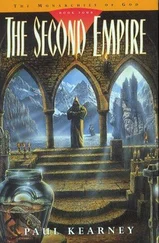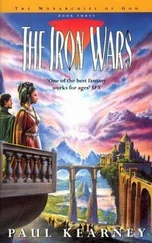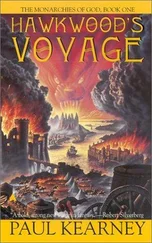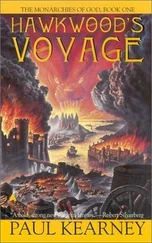Paul Kearney - Corvus
Здесь есть возможность читать онлайн «Paul Kearney - Corvus» весь текст электронной книги совершенно бесплатно (целиком полную версию без сокращений). В некоторых случаях можно слушать аудио, скачать через торрент в формате fb2 и присутствует краткое содержание. Жанр: Фэнтези, на английском языке. Описание произведения, (предисловие) а так же отзывы посетителей доступны на портале библиотеки ЛибКат.
- Название:Corvus
- Автор:
- Жанр:
- Год:неизвестен
- ISBN:нет данных
- Рейтинг книги:5 / 5. Голосов: 1
-
Избранное:Добавить в избранное
- Отзывы:
-
Ваша оценка:
- 100
- 1
- 2
- 3
- 4
- 5
Corvus: краткое содержание, описание и аннотация
Предлагаем к чтению аннотацию, описание, краткое содержание или предисловие (зависит от того, что написал сам автор книги «Corvus»). Если вы не нашли необходимую информацию о книге — напишите в комментариях, мы постараемся отыскать её.
Corvus — читать онлайн бесплатно полную книгу (весь текст) целиком
Ниже представлен текст книги, разбитый по страницам. Система сохранения места последней прочитанной страницы, позволяет с удобством читать онлайн бесплатно книгу «Corvus», без необходимости каждый раз заново искать на чём Вы остановились. Поставьте закладку, и сможете в любой момент перейти на страницу, на которой закончили чтение.
Интервал:
Закладка:
The curtain rises, Karnos thought. You would almost think he had planned it that way.
He stood uncomfortable and self-conscious in his panoply, acutely aware that there was not a single dint in his shield or scrape on the bronze greaves strapped to his shins. He had bought a layered linen cuirass in Afteni years before, the best of its kind, the belly reinforced with iron scales, the wings painted crimson and inlaid with black niello work. It had seemed splendid and martial back then; in this camp it now seemed brash and ostentatious when worn amid thousands of heirlooms and hand-me-downs, scraped and patched and rebuilt after numerous campaigns.
Men received their panoplies from their fathers; some were decades old, rebuilt and repaired time and again. The bronze breast-plates could be older still. But Karnos’s father had never been prosperous enough to belong to the ranks of armoured spearmen that formed the backbone of every citizenry.
I am Karnos of Machran, he told himself. It may be that I am not much of a soldier, but it is I who have created this army, and I hold it together. They sneer at me as the slave-dealer from the Mithannon, but it is I who am cheered by the mob of Machran. I have done what none of them could do, for all their noble heritage and their bloodlines and their ancient heirlooms.
He turned around. Some two dozen men faced him, all in full armour, six in the Curse of God. This was the military Kerusia of the Avennan League, and it comprised the fighting leadership of the greatest of the Macht cities. They were all here today in some form or other: Ferai, Avensis, Arienus, even great Pontis from the south, whose membership had been for decades considered purely nominal. They had all brought their citizens to this hill, perhaps not as many as they might have, but they were here.
Kassander was here too, and his smile warmed Karnos, brought him upright in his heavy war-harness. He had never before been so conscious of his girth: amid these lean, ascetic-looking aristocrats he looked soft; even Periklus of Pontis, twenty years older, seemed more athletic.
But he spoke for Machran here, and the seven thousand spears she had sent to the field. His city was more populous than any two of the others combined, and had once been the seat of the ancient monarchy that had ruled all the Macht. The names of those kings had been lost to history, but the legend of them remained, as did the pre-eminence of Machran itself.
“The enemy moves,” Karnos said, raising his voice to be heard over the marching phalanxes on the slopes below. The tents were emptying like a decanted jug, pouring a sea of men out onto the plain of Afteni.
“Last night it seems he conducted a reconnaissance of our camp. Today, he has set his troops in motion. It would seem that his numbers have been exaggerated; we outnumber him three to two, and what is more the ground is too soft for his cavalry. The odds favour us, brothers” – how that word almost stuck in his throat – “and while not all the promised city levies have yet joined us” – he paused, looking his sombre audience up and down with a hint of accusation, a note of disappointment – “we have the power here to defeat this Corvus where he stands. He has made a mistake, one which we must make fatal.”
“You mean to fight here?” Glauros of Ferai asked. “Today?”
“Today.”
“The ground may be bad for horses, but it is too wet for spears also,” Ulfos of Avensis said. “Can you see our morai advancing through that muck?”
Kassander spoke up.
“Corvus is a soldier of great talent. His strength is in manoeuvre. His troops are better drilled than ours and thus more flexible. We must bog him down and bring our numbers to bear.
“This place, at this time, we can rule his cavalry out of the equation, and we cannot be sure of doing that somewhere else, or at some other time. We have a unique chance here. Citizen levies put their heads down and push; it is almost all they are trained to do. We do that here, and our numbers will soak up anything he can throw at us. We have the soldiers of twenty different cities here who have never fought together before – brothers, we cannot let this thing get complicated.
“We advance on a long front, into the floodplain, and there we fight this Corvus to a standstill. It will not be pretty, and Phobos knows there are many standing on this hill today who will be on the pyre by nightfall, but it is the surest way to take our kind of fighting to the enemy.”
There was a silence as this sank in. They respected Kassander; he had been a soldier all his life, a mercenary in his youth before old Banos had brought him in to train up the Machran city guard. But his present position was due to Karnos, whom they despised. Karnos could almost see the wheels turning in their heads as they stood there cultivating their patrician aloofness, Katullos among them.
“Let this not be about politics,” he said. “Whatever you think of me, consider the position as it stands.
We are here, brothers” – this time the word came easier, for he was sincere – “we are here to preserve the liberty of our cities and our institutions from a tyrant. All else is an indulgence.”
He caught Katullos’s eye, and thought he actually saw a flicker of approval there.
“There are men of Hal Goshen in the ranks across the way, and Maronen and Gerrera and Kaurios. These have been conscripted into this Corvus’s army against their will, their cities enslaved and their treasuries emptied. How hard do you think they will fight for the invader?
“We have but to hold the line, and they will see what way their freedoms lie. Without his cavalry, this Corvus is nothing but a master of slaves.” There were a few arch looks at this, from those who knew him. Karnos, whose wealth had been built on the backs of slaves. No matter – he had them now. He and Kassander had swayed them. Thank the goddess.
There would be a battle today, the greatest fought in the Harukush for generations.
And he, Karnos, would have to be in the middle of it.
His own rhetoric had led him to overlook this.
As his father had used to say, with the fatalism of the poor; you want to eat bread, you got to grind the corn.
ELEVEN
Rictus stood at the forefront of his men with his helm cradled in one arm. His shield was leaning against his planted spear in the front rank. All of the Dogsheads were in battle-line, shields resting against their knees, helms off, enjoying a last feel of the air on their faces, a look at the sky.
They were back of the front line, and the ground was a little drier here on the rising slope leading east along the Imperial Road to the camp. Up front, the ranks of spears had already trampled the sodden earth into an ankle-deep mire simply by getting into formation. Most of the men were barefoot despite the chill of the day, for the plain ahead of them would suck the best-strapped footwear off a man’s feet in a few minutes of fighting.
In front of the red-cloaked mercenaries, Corvus’s army had shaken out into battle formation, a line of infantry some two pasangs long.
Not long enough, Rictus thought. He’ll be outflanked on one side, maybe both. What the hell does he have in mind?
The cavalry had left their horses back in camp and stood beside the Dogheads. There were some two thousand of them under Ardashir, the orphaned prince. They were shieldless, armed with lances and drepanas, clad in the short corselet of the horseman. They were not equipped for phalanx fighting; against a line of heavily armoured spearmen they would be massacred.
Though it had to be admitted, they did lend an exotic sort of variety to the sombre, mud-coloured army. They seemed to vie with one another to own the gaudiest cloaks and most outrageous helmet-crests. And most of them were Kufr, head and shoulders taller than the Macht, their skin seeming almost to glow in the pale autumn sunlight. Ardashir their leader stood out in front of them, leaning on the long, wicked lance of the Companions, his cloak folded around him.
Читать дальшеИнтервал:
Закладка:
Похожие книги на «Corvus»
Представляем Вашему вниманию похожие книги на «Corvus» списком для выбора. Мы отобрали схожую по названию и смыслу литературу в надежде предоставить читателям больше вариантов отыскать новые, интересные, ещё непрочитанные произведения.
Обсуждение, отзывы о книге «Corvus» и просто собственные мнения читателей. Оставьте ваши комментарии, напишите, что Вы думаете о произведении, его смысле или главных героях. Укажите что конкретно понравилось, а что нет, и почему Вы так считаете.
